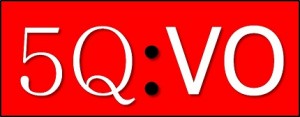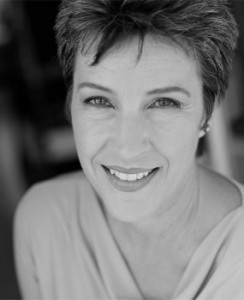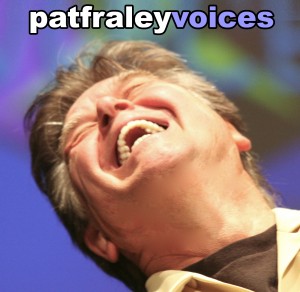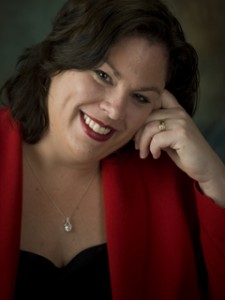Share


Today’s 5 Questions for a Professional Voice Over Talent are answered by Connie Terwilliger, a professional voice-over talent based in San Diego, California.
1. The beginning: When did you know you wanted to be a voiceover talent; how did your career begin (please include what year it started) and then when did your passion for voiceover develop into something professional?
I never wanted to be a voiceover talent. That part of my career evolved. I also never got the kids in the neighborhood together to put on a show – moved too many times to develop friends. But I did have the good fortune in retrospect to work at a broadcast radio station in college doing both some DJ work and public affairs programming. That was in 1972 or so. My double major in Art and Psych resulted in a job at a TV station as a graphic artist. That led to grad school to learn more about television, where I did a little announcing because of the radio experience. But my goal was much more “lofty” than “talent.” Obviously my tune has changed, but at the time, the voiceover work I was doing was not what I thought I wanted to do. I wanted to produce, write and do some on and off-camera talent work. I was lucky I guess. I did all of that for a long time. Eventually, I decided that I didn’t want to produce anymore. And in the late 90’s, I decided to build a studio in my house and focus on voiceover work.
2. What is the one thing you know now that you wish someone had told you when you first started out in voiceover?
This is actually a hard question to answer, because things are very different now than when I first started. When I started doing voiceover work, I was a staff TV announcer at an AFTRA station. Because I didn’t sound like an announcer, the door kept opening and people handed me commercials to record. I got an agent and was, for a while, one of the top female voice talents in the city. So my voiceover work at the time was under union contracts. The rest of my time was spent as a free lance producer, writer and talent for corporations and production companies. A full-time job was offered at a major corporation where I was able to wear all my hats. After nearly 9 years there, my free lance voiceover work was pretty much non-existent. Despite being able to sneak away to do VO work as it came up, after a while it came up less and less – no time to do the marketing, networking and follow up. I went back out as a free lance everything after the company closed its doors – until the light bulb went off and I stopped producing. At that point I started to actively pursue voiceover work as my full-time job, with scriptwriting as my fall back.
I guess if I had to pinpoint one piece of advice it would be the fact that you need solid business skills to make it. All of those things I mentioned earlier, but with negotiating and bookkeeping thrown in. Oh, and technological skills! Today you need to know enough about hardware and software to make sure that you can compete with the other pros out there.
It is not just about your voice anymore! And there are no bread crumbs.
3. What do you see as the biggest professional or personal obstacle you face that impacts your voiceover business and how are you working to overcome it?
I still have a hard time with the basic day to day business activities – keeping up with invoicing, negotiating rates, following up with current and previous clients. I keep my eyes and ears open looking for easier options for bookkeeping and CRM. Damn it Peter, I’m an actor, not a bean counter…
4. What personal trait or professional tool has helped you succeed the most in your career so far?
Longevity? Versatility? Early adopter of technology? Curiosity? Initiative?
Just the fact that I have been doing this a long time helps I think. For one thing getting online with my domains in 1996 was a help. I network in my community and take as full advantage of social networking as I have time for.
Also, when I first started I was “different” so I stood out even when all I was doing was staff announcing. But I am also versatile, so as I was building back my voiceover career I dipped my fingers in practically every voiceover genre, from straight announcing to role playing to characters to concatenation. And ironically, I finally have learned more about my own natural voice and find that I am using that more and more in my work. I don’t have to pretend I am someone else. I finally know who I am and it comes across in more believable reads. I still love the character parts and they do help me find myself when a read just isn’t “right.”
5. In your development as a voice over performer, who has been the one particular individual or what has been the one piece of performance advice (maybe a key performance trick, etc.) that you felt has had the most impact on your actual voice over performance and why?
I never had a mentor to speak of. I listen listen listen to everything and that is such a great way to learn what works and what doesn’t. Of course, applying that to your own personal eye-brain-mouth is the challenge. That is where some good distraction techniques help me.
Inside my brain are a bunch of silly and/or extreme characters that are fully formed with value systems, accents, personalities and speech patterns. If I feel that a read just isn’t connecting, one of them will bubble to the surface and wrench the copy out of my hands. The script is now being interpreted by their brains – with all of their warts coming through. My own brain is doing battle with them – desperately wanting that script back, because now, suddenly the real meaning of the script has surfaced.
One big factor in improving my voiceover performance has been teaching an introduction to voiceover work at San Diego City College. I started teaching this class more than 10 years ago now and while it gets harder and harder to carve out the time 2 days a week to get down there for a couple of hours, it is my own personal voiceover class. I learn more and more about what I am doing each time I teach the class.
Tags: 5 Questions for a Professional Voice Over Talent, 5Q:VO by peter k. o'connell, your friendly, neighborhood voice-over talent
Comments Off on 5 Questions for a Professional Voice-Over Talent – Connie Terwilliger







